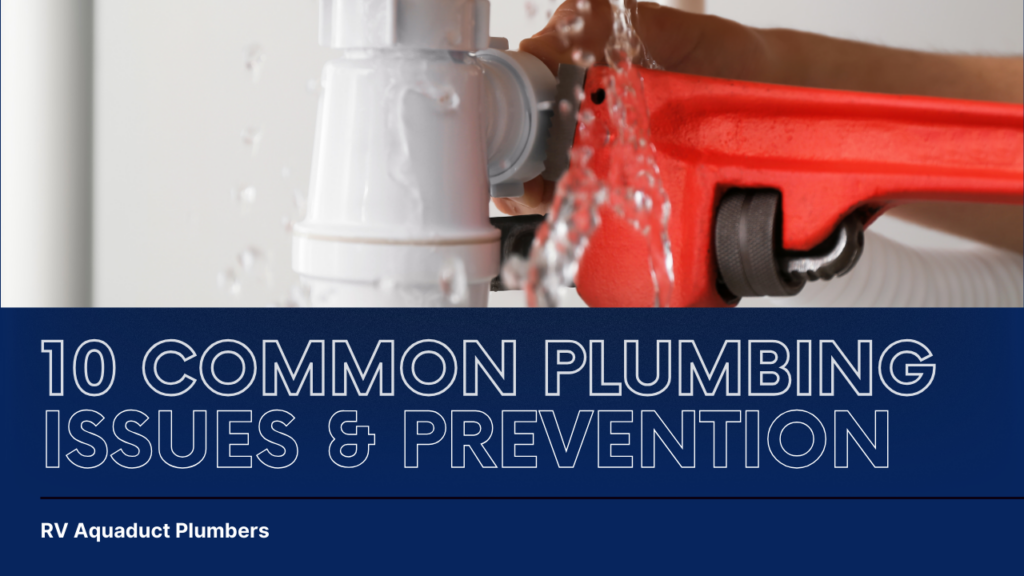10 Common Plumbing Issues and How to Prevent Them

Plumbing issues can be a real headache for homeowners. From leaky faucets to burst pipes, these problems can lead to costly repairs and water damage if not addressed promptly. The good news is that many plumbing issues are preventable with proper maintenance and care. In this blog, we’ll discuss ten common plumbing problems and provide tips on how to prevent them, potentially saving you time, money, and stress down the road.
Dripping Faucets:
Dripping faucets are not just annoying; they waste a significant amount of water over time. Often, a worn-out washer or O-ring is the culprit. To prevent this issue, regularly check and replace these components.
Clogged Drains:
Clogged drains are a common nuisance. Avoid pouring grease, food scraps, hair, or foreign objects down the drain. Consider using drain screens or catchers to prevent debris from going down the drain.
Running Toilets:
Running toilets can waste hundreds of gallons of water each day. To prevent this, periodically inspect the flapper valve and adjust the float arm or replace any worn-out components.
Leaking Pipes:
Leaking pipes can lead to water damage and mold growth. Inspect your plumbing for leaks regularly, especially in areas like basements or crawl spaces. Address any leaks promptly by repairing or replacing damaged pipes.
Low Water Pressure:
Low water pressure can result from mineral buildup in your pipes. Install water softeners or filtration systems to prevent this issue, and periodically clean out faucet aerators and showerheads.
Water Heater Issues:
Sediment buildup in the water heater tank can reduce efficiency and lead to problems. Flush your water heater annually to prevent sediment buildup and extend its lifespan.
Frozen Pipes:
In cold climates, frozen pipes can be a nightmare. Insulate exposed pipes and disconnect hoses from outdoor faucets before winter. Let faucets drip during freezing weather to prevent pipes from freezing.
Sewer Line Backup:
Sewer line backups can be a messy and costly problem. Avoid flushing non-flushable items down the toilet, and schedule regular sewer line inspections to catch issues early.
Water Leaks:
Water leaks can go unnoticed until they cause significant damage. Install water leak detectors and consider a whole-house shut-off valve for added protection.
Water Quality Issues:
Poor water quality can affect your health and plumbing. Test your water for contaminants regularly and consider installing water treatment systems if needed.
Conclusion:
By being proactive and following these preventive measures, you can save yourself the stress and expense of dealing with common plumbing issues. Regular maintenance and responsible habits are key to keeping your plumbing system in top shape. If you ever encounter a plumbing problem that you can’t handle on your own, don’t hesitate to call a professional plumber to address the issue promptly and prevent further damage to your home. Remember, prevention is the best cure when it comes to plumbing problems.